Managing Debt in Singapore: Balancing Loans, Credit Cards, and Financial Stability
Debt is a common part of life, whether through loans, mortgages, or credit cards. However, managing debt effectively is key to maintaining financial stability and ensuring long-term financial health. In this newsletter, we’ll explore how individuals in Singapore can manage their debt wisely, the importance of avoiding high-interest pitfalls, and how independent financial advisors can support better cash management through investment platforms.
1. Understanding Your Debt: Know What You Owe
Before tackling your debt, it’s important to have a clear understanding of what you owe. In Singapore, this could include:
•Housing loans for properties (HDB or private homes)
•Personal loans for big-ticket purchases or unexpected expenses
•Credit card debt, often with higher interest rates
Knowing the interest rates, repayment terms, and amounts of each debt type helps you create a roadmap to repayment.
2. Prioritizing High-Interest Debt: The Fastest Way to Financial Freedom
One of the most effective debt management strategies is focusing on paying off high-interest debt first, often known as the debt avalanche method. In Singapore, credit card debt can carry interest rates as high as 25% per annum. Prioritize clearing such debts to minimize the amount paid over time.
Additionally, it’s wise to compare and explore debt refinancing or consolidation options, such as:
•Debt Consolidation Plans (DCP) offered by local banks
•Balance transfers for short-term relief from high-interest credit card debt
By lowering the interest rates on large debt, individuals can repay more principal each month and shorten their overall repayment timeline.
3. Building a Sustainable Debt Repayment Plan
Debt repayment should be a structured part of your overall financial plan. A helpful tool for organizing your finances is the 50/30/20 Rule:
•50% for Essentials: Allocate 50% of your income to necessary expenses, such as housing loans, groceries, utilities, and transportation. In Singapore, this category typically includes loan repayments (such as home or personal loans) and credit card payments. Ensuring that debt repayment falls within this portion helps maintain stability in your monthly budget.
•30% for Wants: This portion goes to discretionary spending, such as dining out, entertainment, and other lifestyle expenses. However, when managing significant debt, cutting back on non-essential spending is often necessary to focus more resources on debt repayment.
•20% for Savings, Insurance, and Investments: This portion is crucial for long-term financial health. It includes contributions to your savings (such as an emergency fund), insurance premiums, and investments. Insurance is important for protecting yourself from unforeseen events that could strain your finances, while investments help grow your wealth over time. It’s vital to balance your debt repayments with these contributions to avoid shortchanging your future financial goals.
Is the 50/30/20 Rule Right for Everyone?
While the 50/30/20 rule is a useful guideline, it’s not a one-size-fits-all solution. Individuals at different life stages or with varying financial circumstances may need to adjust the rule’s allocation to meet their needs.
For example, if someone in their 40s has no insurance or investments and hasn’t built up a retirement fund, it’s crucial to prioritize catching up on these areas. In such cases:
•Debt repayment may need to take up more than 50% of income if high-interest debt is draining financial resources.
•Savings and investments may require a higher proportion of income, especially if retirement is approaching, which could mean cutting back even more on discretionary spending.
It’s essential to personalize your financial plan. If you’re starting late with insurance, investments, or retirement planning, consider working with a financial advisor to create a more tailored approach. The 50/30/20 rule can be adjusted to prioritize your most pressing financial needs.
4. Using Financial Advisors to Strengthen Your Cash Flow Management
Working with independent financial advisors provides access to personalized debt management and investment platforms. Advisors can recommend strategies that align with your financial goals while leveraging investment platforms for better cash flow management, including:
•Cash Management Accounts: These offer better interest rates on savings while keeping funds liquid for debt repayments.
•Debt Repayment vs. Investment: Advisors help balance the decision between paying off debt versus investing for future growth.
•Structured Regular Withdrawals: For those with substantial assets, creating a cash flow plan through structured withdrawals can ensure that liquidity is available to service debt while still growing your wealth.
5. Leveraging Investment Platforms for Debt Management
Independent financial advisors can integrate debt management strategies with investment platforms. These platforms offer multiple ways to optimize cash flow, such as:
•Automated fund transfers to service debt payments
•Access to higher-yield savings accounts to outpace inflation
•Personalized debt strategies that consider both investment and repayment goals, ensuring efficient use of cash
These platforms help manage cash more effectively by offering a mix of liquidity, safety, and returns—key to paying off debt while growing wealth. For further details on the best platforms to suit your needs, feel free to reach out.
6. Avoiding Debt Pitfalls: Financial Discipline is Key
No debt management strategy works without financial discipline. Here are some habits to cultivate:
•Avoid impulse spending: Especially with credit cards, which often carry high-interest rates
•Stay informed on loan offers: Regularly review the market for better refinancing or consolidation opportunities
•Maintain an emergency fund: So unexpected expenses don’t lead to new debt
Conclusion: Achieving Financial Stability in Singapore
Managing debt effectively is essential for financial health, especially when dealing with loans and high-interest credit cards. By understanding your debt, prioritizing repayment, and leveraging financial advisors for more effective cash management, you can reduce your financial burden and move towards a more stable financial future. Independent financial advisors can provide crucial guidance and access to platforms that streamline both debt repayment and wealth-building strategies, ensuring long-term success.
Interested in learning more about debt management and cash flow strategies? Reach out to me for a complimentary consultation on how we can optimise your financial plan together.
Cheers.
𝗟𝗲𝘁’𝘀 𝗖𝗼𝗻𝗻𝗲𝗰𝘁:
I am Zechariah See
➡️ http://linkedin.com/in/zechariahsee
#DebtManagement
#FinancialHealth
#DebtFreeJourney
#50_30_20Rule
#InvestmentPlanning
#CashFlowManagement
#FinancialPlanning
#SingaporeFinance
#IndependentFinancialAdvisor
#InsuranceAndInvestments
#WealthBuilding
#FinancialStability
#SmartMoneyManagement
#PersonalFinanceTips
#CreditCardDebt
#LoanRepayment
#RetirementPlanning
✅ Stay updated on the latest insights in financial health topics by subscribing to this newsletter via my Linkedin!!
𝘋𝘪𝘴𝘤𝘭𝘢𝘪𝘮𝘦𝘳: 𝘛𝘩𝘦 𝘢𝘣𝘰𝘷𝘦 𝘤𝘰𝘯𝘵𝘦𝘯𝘵 𝘪𝘴 𝘧𝘰𝘳 𝘪𝘯𝘧𝘰𝘳𝘮𝘢𝘵𝘪𝘰𝘯𝘢𝘭 𝘱𝘶𝘳𝘱𝘰𝘴𝘦𝘴 𝘢𝘯𝘥 𝘱𝘦𝘳𝘴𝘰𝘯𝘢𝘭 𝘷𝘪𝘦𝘸𝘴 𝘰𝘯𝘭𝘺, 𝘢𝘯𝘥 𝘴𝘩𝘰𝘶𝘭𝘥 𝘯𝘰𝘵 𝘣𝘦 𝘥𝘦𝘱𝘦𝘯𝘥𝘦𝘥 𝘶𝘱𝘰𝘯 𝘢𝘴 𝘱𝘳𝘰𝘧𝘦𝘴𝘴𝘪𝘰𝘯𝘢𝘭 𝘧𝘪𝘯𝘢𝘯𝘤𝘪𝘢𝘭 𝘢𝘥𝘷𝘪𝘤𝘦 𝘺𝘦𝘵. 𝘙𝘦𝘢𝘥𝘦𝘳𝘴 𝘴𝘩𝘰𝘶𝘭𝘥 𝘴𝘦𝘦𝘬 𝘪𝘯𝘥𝘦𝘱𝘦𝘯𝘥𝘦𝘯𝘵 𝘧𝘪𝘯𝘢𝘯𝘤𝘪𝘢𝘭 𝘢𝘥𝘷𝘪𝘤𝘦 𝘵𝘩𝘢𝘵 𝘪𝘴 𝘵𝘢𝘪𝘭𝘰𝘳𝘦𝘥 𝘵𝘰 𝘵𝘩𝘦𝘪𝘳 𝘪𝘯𝘥𝘪𝘷𝘪𝘥𝘶𝘢𝘭 𝘧𝘪𝘯𝘢𝘯𝘤𝘪𝘢𝘭 𝘰𝘣𝘫𝘦𝘤𝘵𝘪𝘷𝘦𝘴, 𝘤𝘪𝘳𝘤𝘶𝘮𝘴𝘵𝘢𝘯𝘤𝘦𝘴, 𝘢𝘯𝘥 𝘯𝘦𝘦𝘥𝘴. 𝘊𝘰𝘯𝘵𝘦𝘯𝘵 𝘪𝘴 𝘯𝘰𝘵 𝘳𝘦𝘷𝘪𝘦𝘸𝘦𝘥 𝘣𝘺 𝘵𝘩𝘦 𝘔𝘰𝘯𝘦𝘵𝘢𝘳𝘺 𝘈𝘶𝘵𝘩𝘰𝘳𝘪𝘵𝘺 𝘰𝘧 𝘚𝘪𝘯𝘨𝘢𝘱𝘰𝘳𝘦.
Important: The information and opinions in this article are for general information purposes only. They should not be relied on as professional financial advice. Readers should seek unbiased financial advice that is customised to their specific financial objectives, situations & needs. This advertisement or publication has not been reviewed by the Monetary Authority of Singapore.

Published By:
Zechariah See
I bring a unique edge to financial advisory—one grounded in real-world entrepreneurship and business building across multiple industries.
Beyond my background in financial services, oil & gas engineering, and military leadership, I’ve founded and grown several businesses ranging from a medical concierge firm and a marketing services company to ventures in trading, floristry, and industrial project solutions. These hands-on experiences in building brands, managing operations, leading teams, and navigating market shifts give me a practical understanding of what it truly takes to run and grow a business.
This allows me to connect deeply with families and business owners—not just as their advisor, but as someone who has stood in their shoes in managing complex risks and needs from big families and evolving businesses.
Today, I channel this breadth of experience into helping entrepreneurs, corporate leaders, and families design resilient financial strategies—from investment planning and cash flow management to business protection and legacy planning. Whether you’re looking to scale, optimise your holdings, or plan your exit, I can offer insights that are both strategic and actionable.
My key deliverables will be to protect your assets from downside business/family risks and give you a lift for your upside potentials.
If you are a business owner who values working with someone who understands your world, or if you know someone who would benefit from such a partnership—I’d love to connect.
Let’s build something meaningful together.
I can be reached via the communication channels mentioned below. Chat with you soon. Cheers.
Connect With Me:
📞 Mobile: +65 88004252
📧 Email: zechariahsee@fapl.sg
🔗 LinkedIn: linkedin.com/in/zechariahsee

CONTACT US
- 150 Beach Road #12-01/08, Gateway West Singapore 189720
- +65 62221889
- +65 62221019
- feedback@fa.com.sg
